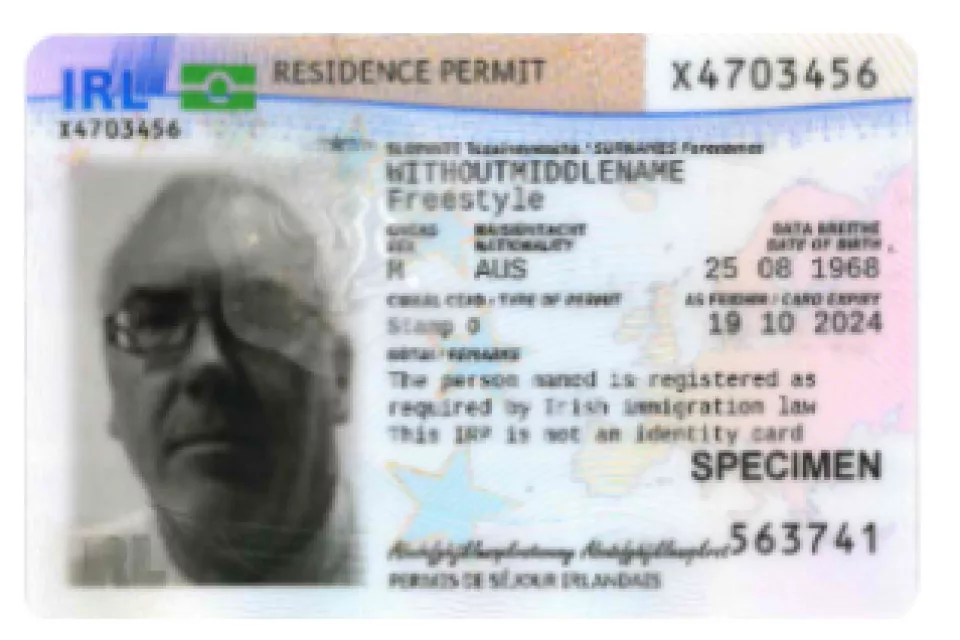Registering with the Immigration Services

If you are not a European Economic Area (EEA) citizen and will be staying in Ireland to study for more than 90 days, you will need to register with the Irish immigration services.
The Department of Justice, Home Affairs and Immigration manages immigration services in Ireland.
All non-EEA international students must register with the Department of Justice, Home Affairs and Immigration at the Burgh Quay Registration Office in Dublin. You will need to create an account on the the immigration Customer Service Portal to book an appointment.
Please be advised that you must have started your course before you register with the immigration services.
To register as a student and be issued with an Irish Residency Permit card, you will need to bring the following documentation:
- Your passport.
- An acceptance letter from your school / college confirming that you are a registered student and that you have paid your course fees.
- Your student ID card, if applicable - a university or large college will provide you with one when you register as a full-time student; smaller schools and colleges may not issue student cards.
- Your medical insurance policy.
- Proof of finances if you did not require a visa to come to Ireland. Acceptable proofs include: an Irish bank statement showing that you have €10,000 or more in your bank account (or €833 per month for stays of less than 8 months); a foreign bank statement in your name showing access to equivalent funds; a pre-paid credit or debit card with a verification of the amount in credit. For more information, see the Immigration Service Delivery website.
- A €300 fee is also required. You must pay for this with a visa or debit card. Cash is not accepted.
- Once you have registered, your IRP card will be posted to you within 10-15 working days. IRP cards are issued for different lengths of time depending on the type of course being studied.
- If you are studying at a higher education institution (a college or university), you will normally receive a 12 month visa.
- If you are studying at an English language school, you will receive an 8 month visa.
FAQs
- You will need to log in to your account on the Portal to renew your visa. If you do not have one, you will need to create an account.
- The rest of the process is similar to original registration, except that proof of finances is not normally required.
- The fee for renewal is €300.
- For English language students and students studying at private colleges, you should have a minimum 85% attendance rate.
- For students studying in public universities and institutes of technology, an attendance rate is not always recorded, but you will be expected to have passed the academic year. If your grades are such that your higher education institution requires you to repeat the full academic year, you will not be permitted to renew.
Under Irish immigration law, non-EEA students may study in Ireland for a maximum period of 7 years. PhD students may study for a maximum period of 8 years
Health Insurance
Under EU/EEA regulations, students from other EEA states who are attending a course of study in Ireland are entitled to medical services in the public health system and are not required to have health/medical insurance. However, some conditions may apply. Learn more about health insurance in Ireland
The Irish immigration service requires that all non-EEA students have at least a basic policy covering emergency medical expenses, and proof of insurance is required at the time of registration with immigration authorities.
For short-term students and newly arrived first year students, travel insurance may suffice in some circumstances. You may obtain private medical insurance in your home country provided that it is in English, valid in Ireland, and meets the requirements of the Irish immigration services.
Medical insurance meeting minimum immigration service requirements is likely to be available through your college in Ireland. Many have a group medical insurance scheme in place. There is, however, no requirement for you to obtain medical insurance through your host institution, rather than another provider, and no college should make purchase of their medical policy compulsory.
More information on immigration and visa requirements is available at www.irishimmigration.ie.
Back to INFO & ADVICE
